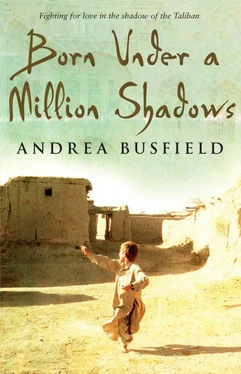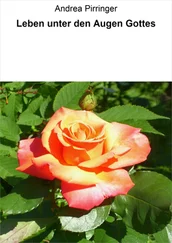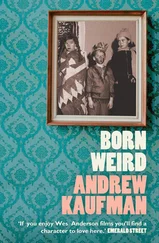God, Afghanistan, and the Taliban were complicated subjects when put together, and difficult to make sense of, especially when you were only a boy, because the bottom line was this: a good Muslim should never question the ways of the Almighty. A good Muslim would trust in God to provide, no matter what, and even if He didn’t provide, a good Muslim would trust that the hunger, death, fighting, and disease that came to visit his door were all part of God’s plan. And given that knowledge, the Taliban planning minister must have been right and his regime must also have been part of God’s plan for Afghanistan. And that’s quite an argument when you’re taking over a country.
Taliban basically means “religious students,” so it must have been easy to convince ordinary Muslims living in the countryside, who couldn’t read and write, that the orders they gave came straight from the pages of the Koran. If it says in the Holy Koran that girls should not go to school, who was a farmer to question the Word of God? Of course, my mother said the Holy Koran doesn’t say any such thing, although how she knows this, being illiterate herself, I’m not sure, but she seems pretty confident. However, when a Talib tells a man with no schooling that it is written just so, how can he argue against such knowledge and learning, and therefore against God Himself? He has to accept it. And that’s why the best weapon the Afghan people have against the Taliban or any other terrible power that may choose to put itself in Afghanistan is education. At least that’s what Ismerai told me.
Ismerai was the latest newest person in my life, and he was Haji Khalid Khan’s uncle.
“When you can read and write and discover facts for yourself, it is far easier to see God’s truth,” he explained as he leaned back on the blanket that had been laid on the grass of our garden, sucking deeply from his hands, which were wrapped around an Afghan cigarette. “Education is the key to Afghanistan’s successful future, Fawad, because it fights ignorance and intolerance and brings the blessing of opportunity. When a man has knowledge he has power—the power to make informed decisions; the power to distinguish truth from lies; and the power to shape his own destiny in accordance with God’s will. He is stronger than the ignorant man, who can do nothing but blindly accept the supposed learning of another. And speaking of the blind…” Ismerai paused to force a huge smoke ring from his mouth. “I’d advise your friend Pir Hederi to be a little more careful when speaking about the Taliban in the future. Any man can shave off his beard and swap his turban, but it doesn’t mean he is a changed man.” Taking another pull on his cigarette, he added mysteriously, “We are not alone.”
I nodded slowly, letting the words take shape in my head so that I’d remember them. “Okay, I’ll tell Pir Hederi,” I promised, because I looked up to Ismerai and I trusted what he had to say. He also smoked drugs, and though my mother disapproved, I thought it made him funny and interesting.
Ismerai and Haji Khalid Khan often visited the house together because, apparently, Georgie was friends with the whole family. She told me she knew his brothers and cousins and even his children, so I realized it was little wonder she’d never found time to learn how to wash her clothes. She was too busy collecting Afghans.
Since the day Haji Khalid Khan had come into my world, with his army of bodyguards and two-hand embraces, my relationship with Georgie had been, at best, polite. We would talk now and again, but I preferred to keep my distance, and Georgie didn’t push it. We were growing apart, and though it was all my doing, I couldn’t help myself. I felt betrayed. I felt like she’d let me down. Led me on and let me down.
I think Georgie realized I was upset because when she came to pick me up from Pir Hederi’s I would make up some excuse or tell her I was busy rather than accept a lift home—and I wouldn’t let her hold my hand anymore. “I’m not a child!” I’d shouted at her the last time she’d reached for me, and I knew I’d hurt her feelings because she said very quietly, “Fawad, I have never, ever treated you like a child.”
“You told my mother I’d been drinking beer!” I sharply reminded her.
“Okay, apart from that time,” she agreed, then walked off, leaving me feeling angry and horrid because it wasn’t really her fault and the blame lay completely in my own head.
“She’s a good woman, you know,” Ismerai scolded me as we sat in the garden passing another hour together as Haji Khalid Khan took Georgie inside to do God knows what with her.
“I didn’t say she wasn’t,” I snapped.
“No,” he admitted, “but your actions talk for you, and it’s not a nice way to behave to someone who’s a guest in our country and, even more than that, a friend.”
And of course he was right. I was jealous without having the right to be jealous. I should have been pleased to see Georgie happy. But it was hard, and I was annoyed by the smile that played on her face now. I hated the fact that she drank her coffee with Haji Khalid Khan in the late afternoon when it used to be me, and I was wild with anger that at least twice a week she would stay away from the house and I knew she was with him.
“Your time will come, child,” Ismerai said, “but it won’t be with Georgie.”
And I realized he’d looked deep into my heart and knew everything.
Despite the hurt that covered my insides like a bad bruise slowly going yellow, it was hard not to like Haji Khalid Khan.
“He’s a charmer,” my mother admitted as we talked about Georgie’s friendship. “He could talk the birds from the trees, that man.”
“Shir Ahmad talks to the dogs in the street,” I offered.
“It’s not quite the same thing,” she replied.
“What do you mean, then?”
“You’ll find out soon enough, Fawad, because if I’m not mistaken you’ve got the same gift—although right now you only seem capable of talking the hind legs off a donkey. But it’ll come, son. It’ll come.”
And my mother went back to her chores, leaving me to think about my future talent and my current, previously unknown, ability to cripple donkeys.
However, it wasn’t Haji Khalid Khan’s way with words that slowly ate away at my anger, although he was funny and strangely gentle in his manners for such a big man. No, my feelings began to slide on the Friday when Spandi came for lunch. It was Georgie’s idea to invite him, and I guessed it was mainly for my benefit.
All of us—me, my mother, Georgie, James, May, Ismerai, Spandi, and Haji Khalid Khan—were drinking green tea outside in the garden. Although a cold wind bit at our fingers, we were enjoying the last of the autumn days before another winter closed in and locked us indoors. On a deep-red blanket we sat cross-legged, forming a ragged circle as the adults fired happy stories into the air. Georgie and Haji Khalid Khan acted as translators, which marked them out as different from the rest of us, somehow more worldly and knowledgeable, and brought them together as a couple. Nobody seemed to question this other than me, so I tried to hide my annoyance whenever Georgie rested her hand on Haji Khalid Khan’s knee or softly stroked his shoulder as she got to her feet to refill our cups.
For it wasn’t just Georgie whose mood changed with the appearance of Haji Khalid Khan; everyone seemed to be different around this elegant man, who dressed like a king and smelled of expensive perfume. His visits dragged everyone away from their different lives, uniting us in shared jokes and happy moments like a family. It wasn’t a daily thing, of course, but while Haji Khalid Khan was in Kabul everyone at the house gathered at least once a week, twice if there was a reason to, such as Spandi’s invitation to lunch.
Читать дальше












